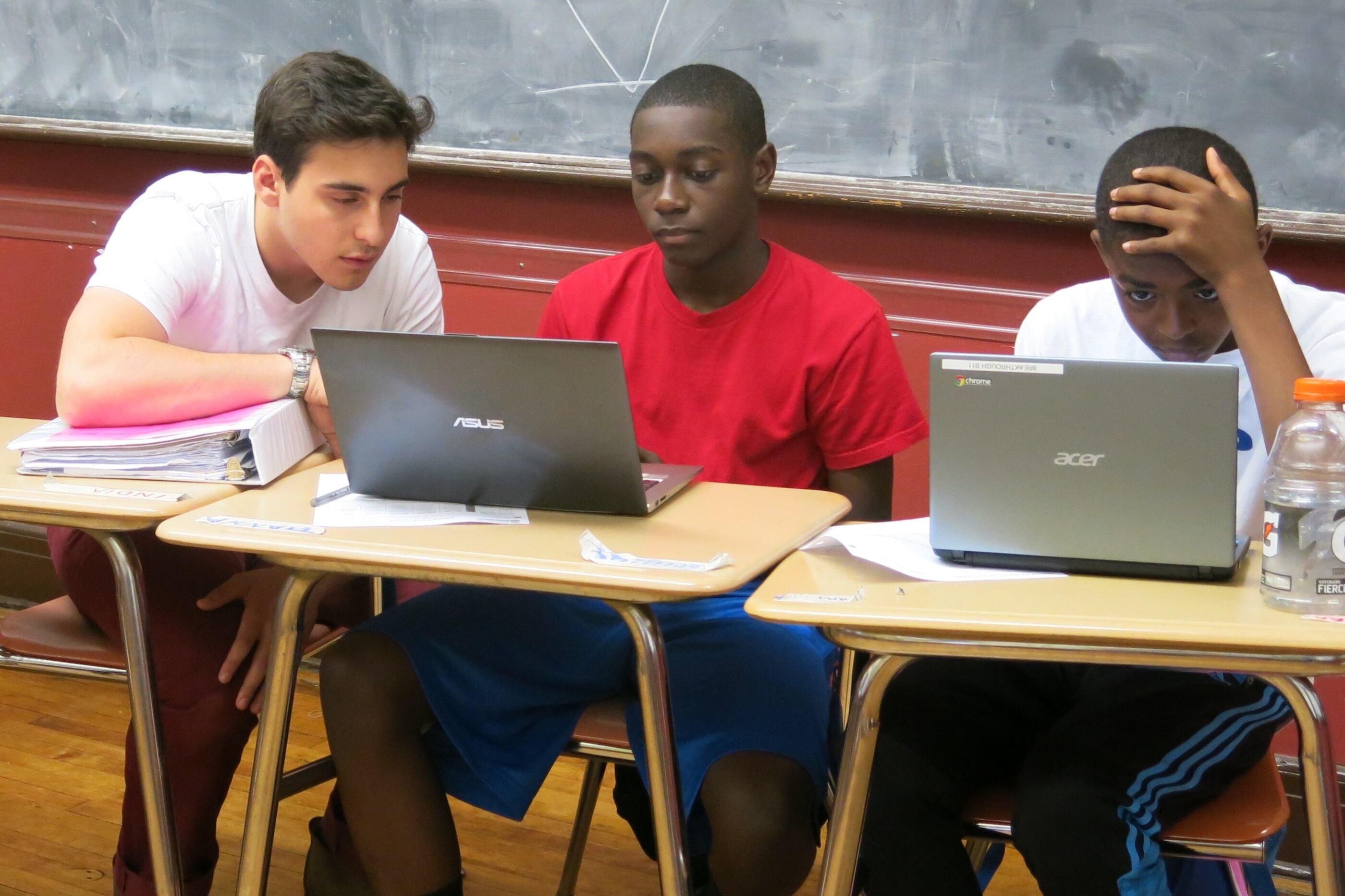Without knowing how much city funding is coming, organizations that run summer youth programs are preparing to lay off or furlough staffers.
The city has committed to providing some funding for next fiscal year, which begins July 1. But with budgets still uncertain, summer program providers — many of which also run after-school activities during the academic year — are cutting employees’ jobs and hours. These cuts will affect roughly 14,000 youth services employees citywide, according to a United Neighborhood Houses estimate. Some of these organizations hope to be open within weeks.
“Right now, this is catastrophic,” said Rachael Gazdick, CEO of New York Edge, the city’s largest provider of after-school programs, who told its 1,700 employees this week that they will move to a two-day work week on June 29.
Mayor Bill de Blasio has proposed cutting public summer camps and the city’s youth employment program, affecting roughly 175,000 New York City children in total. City officials initially said it would be impossible for children to attend these programs because of social distancing concerns, but the mayor later acknowledged that financial pressures are also a factor. New York City is facing down billions in lost revenue due to the coronavirus pandemic.
Under pressure from those protesting racism and police brutality, de Blasio said this week the city will shift some money to youth services, from the New York City Police Department’s budget, as of July 1. Without such a move, the Department of Youth and Community Development, which oversees the youth programs in question, is poised to see about one-third of its budget cut, while police funding would drop by less than 1%.
Deep cuts to youth services would be devastating for low-income communities, according to youth advocates and some elected officials who are demanding that money for these programs be diverted from law enforcement. City Council Speaker Corey Johnson and several other City Council members were among those pushing for such a shift.
But the mayor has not disclosed any details on that proposal or said exactly how those funds would be distributed. “We’re working through specifics now and will be in touch with stakeholders as soon as possible,” said Freddi Goldstein, press secretary for the mayor, in a statement Wednesday.
Many organizations, such as Gazdick’s, have been providing virtual after-school programming, such as academic help and dance classes, for months, which they believe can be replicated for the summer. Organizations have put together different contingency plans, based on what they’ll be allowed to provide.
The state is allowing in-person summer day camps to reopen June 29 and released guidelines Tuesday for how they can operate, including mandatory rules to wear masks and limit the number of children in a specific group.
The continued uncertainty around funding also leaves in the dark low-income families who may be returning to work as New York City begins to reopen. Many of these families typically rely on summer and after-school programs to help care for their children during the workday.
“With every passing day, it becomes more and more difficult to prepare for a constructive and engaging summer; we must make sure we can enroll families and youth in advance, that facilities are clean, and that engaging curriculum and activities are planned,” said an open letter to the mayor penned by youth service workers on Wednesday.
Providers also worry that impending furloughs and layoffs could cause their employees to seek work elsewhere, making it harder for programs to scale up summer camps if funding comes through. It could make it difficult for summer providers who also offer after-school programming to plan for the fall.
“Typically summer has a smaller number of slots overall than the school year does, and so summer is a time when staff is regrouping, planning, developing quality programs and running summer camps, and you lose all of that when you don’t have funds to pay people for the summer,” said Saskia Traill, president and CEO of ExpandEd, which designs and supports afterschool programs.
Queens Community House notified 160 part-time employees that they will be furloughed as of July 1, said Helena Ku, the organization’s associate director of youth services. Sunset Park’s Center For Family Life will furlough 186 staffers on July 1, said Julie Stein Brockway, the group’s executive director. Ku, Brockway, and Gazdick said their organizations overwhelmingly employ people who were raised and live in the communities that they serve.
Gazdick does not yet know what their funding will look like for after-school programs in the fall or what their model will look like. This is the time they usually plan all of those things, she said.
“These two months are so critical to us for so many reasons,” Gazdick said.
Some employees have informed Brockway that they must pursue other opportunities, which she understands. Others have said they will wait out the budget dance or will volunteer to help, if needed, she said.
But a big concern in the provider community is how smaller programs will survive if funding doesn’t come through or how they will “spring into action” if many employees choose to leave and can’t be brought back if some funding is restored.
“There’s basically a decimation of all of the infrastructure that has been built for decades in communities, in these organizations,” Brockway said. “The staff we’re talking about – for me, it’s the young people who have grown up with our organizations.”
Correction: An earlier version of this story referred to ExpandED as an after-school provider. ExpandEd designs and supports afterschool programs, working with many providers.






